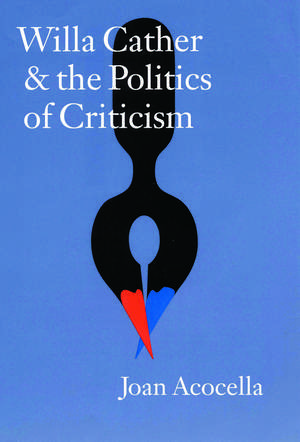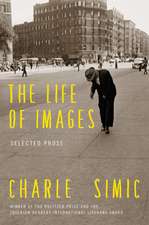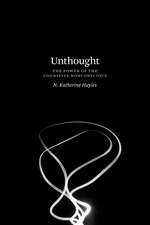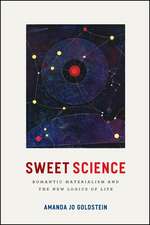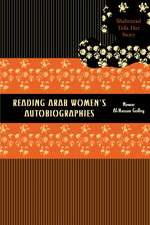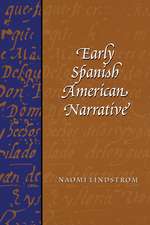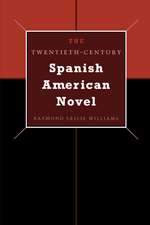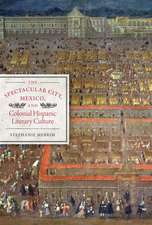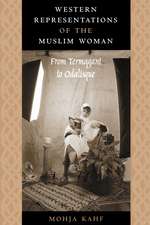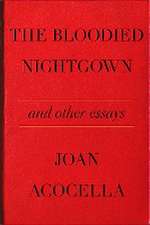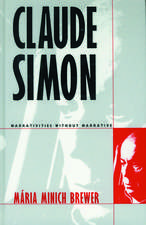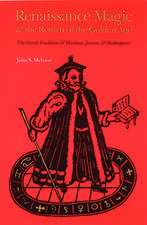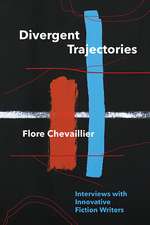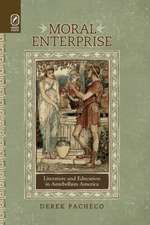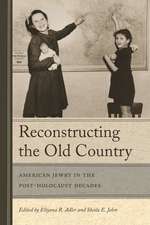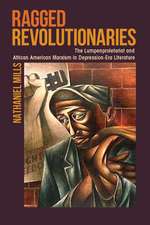Willa Cather and the Politics of Criticism
Autor Joan Acocellaen Limba Engleză Hardback – 31 ian 2000
Expanding on her absorbing and controversial 1995 New Yorker article, Joan Acocella examines the politics of Willa Cather criticism: how Cather’s work has been seized upon and often distorted by critics on both the left and the right. Acocella argues that the central element of Cather’s works was not a political agenda but rather a tragic vision of life. This beautifully written book makes a significant contribution to Cather studies and, at the same time, points out the follies of political criticism in the study of all literature.
Preț: 211.92 lei
Nou
Puncte Express: 318
Preț estimativ în valută:
40.56€ • 44.08$ • 34.10£
40.56€ • 44.08$ • 34.10£
Carte tipărită la comandă
Livrare economică 22 aprilie-06 mai
Preluare comenzi: 021 569.72.76
Specificații
ISBN-13: 9780803210462
ISBN-10: 0803210469
Pagini: 127
Dimensiuni: 150 x 250 x 15 mm
Greutate: 0.3 kg
Ediția:New.
Editura: Nebraska
Colecția University of Nebraska Press
Locul publicării:United States
ISBN-10: 0803210469
Pagini: 127
Dimensiuni: 150 x 250 x 15 mm
Greutate: 0.3 kg
Ediția:New.
Editura: Nebraska
Colecția University of Nebraska Press
Locul publicării:United States
Notă biografică
A staff writer for the New Yorker, Joan Acocella is the author of Creating Hysteria: Women and Multiple Personality Disorder and Mark Morris, and the editor of The Diary of Vaslav Nijinsky.
Recenzii
"[A] sane and sometimes very funny critique of the critics."—The Economist
"(Acocella's book) shines with exemplary good sense. . . . When I read Willa Cather and the Politics of Criticism I realized I had gloomily expected that it was virtually impossible these days to write, or to publish, so sensible a book."—New York Review of Books
"New Yorker dance critic Acocella wittily charts decades of politically influenced Cather criticism and suggests an approach that balances politics with 'a sustained attention to what the artist is saying.'. . . Acocella is pointed and funny in her analysis (on current critics: 'No tree can grow, no river flow, in Cather's landscapes without this being a penis or menstrual period') and compelling in her request to move beyond politics."—Publishers Weekly starred review
"[Joan Acocella] has written a cogently argued, persuasive, and often very funny overview of the work of Willa Cather and the congeries of literary critics that have followed in her wake. . . . Acocella, a long-time admirer of Willa Cather, is a reasonable, rational critic. Her claims for this still rather underrated but surely 'major' American writer are not outsized or radical; she is gently polemical and illuminating when she writes of Cather’s meticulously crafted prose, and amusingly combative when she writes of certain of the bizarre uses which have been made of that prose in the name of political agendas. Acocella’s concern isn’t only with wilful misreadings of Willa Cather but with the purpose of criticism itself."—Times Literary Supplement
"[An] eloquent, wholly admirable book. . . . This devastatingly concise book isn't going to win its fearless author any prizes—she marches through the ranks of Cather scholars the way Sherman marched through Georgia—but anyone who has had it up to here with political correctness should buy a copy of Willa Cather and the Politics of Criticism and get ready to cheer, long and loudly. But Acocella, though she has assembled quite a nifty little chamber of critical horrors, is not your ordinary outrage-collecting cultural conservative. In fact, she is not a conservative at all, but an old-fashioned, determinedly non-radical feminist who insists that the proper goal of art is to describe life in all its proliferation, ideology-transcending complexity. . . . Far from being a purveyor of proto-identity politics, Cather was in fact an artist of extraordinary breadth, and the more I read her, the surer I am that she is not merely a woman novelist, or even an American novelist: She is a great novelist, clear-eyed and strong-hearted, who describes the harshness of the world in words of calm and consoling beauty."—Terry Teachout, National Review
"Beginning at this formative period in Cather's life and career (her family's move to Red Cloud), and proceeding throughout the history of her critics, in all their folly, before returning to Red Cloud in its final pages, Joan Acocella's Willa Cather and the Politics of Criticism is at once a portrait of the artist and a chronicle of American literary criticism as it came into its own--often at the expense of the integrity of its subjects."—New York Times Book Review
"This overview of almost a century of inadequate Cather criticism concludes with the follies of feminist academics, who chide their subject for her politics, expound portentously on her 'gaps' and 'fissures,' and attempt to shove her into just the sort of sexually defined identity that she scorned throughout her life."—New Yorker
"Willa Cather and the Politics of Criticism is a sort of gleaming, double-edged thing: both a brisk appreciation of Cather's artistic achievement and a stern, even cutting assault on modern Cather scholarship. . . . Acocella is . . . [a] lucid, obdurate force: an intelligent outsider challenging the norms of a somewhat decadent and in-grown professional clique. She is also a marvellous, canny writer."—London Review of Books
"Every critic of American modernism should read this book. It has more to say about the present moment in American literary criticism and about the making of literary reputation than most larger studies. It is apt in myriad ways—a little well-made book replete with sharp, well-informed distinctions, a fine sense of historical context, and a humane appreciation of those qualities that first drew readers to Cather's fiction, and despite the politics of many of her critics since, continue to do so. . . . Acocella treats Cather, her work, and her critics in an evenhanded, informed, and precise fashion. There is nothing vicious here, only good sense and a fine aesthetic sensibility, buttressed by solid scholarship conveyed in sharp prose. . . . As a study of the politics of literary reputation, Willa Cather and the Politics of Criticism is exceptional; as a serene appreciation of a great writer's life and work, it is poetic; as a reminder to critics of the function of criticism, it is harrowing. This book needs to be read."—American Literature
"This slender volume is rich in content on a subject that should not even exist, and yet it does. Willa Cather should of course be read as Willa Cather, but Acocella skillfully argues that this is far from the reality of Cather criticism as it exists today. . . . A splendid study, this book goes beyond Cather to literary criticism in general. Highly recommended for upper-division undergraduates through faculty."—Choice
